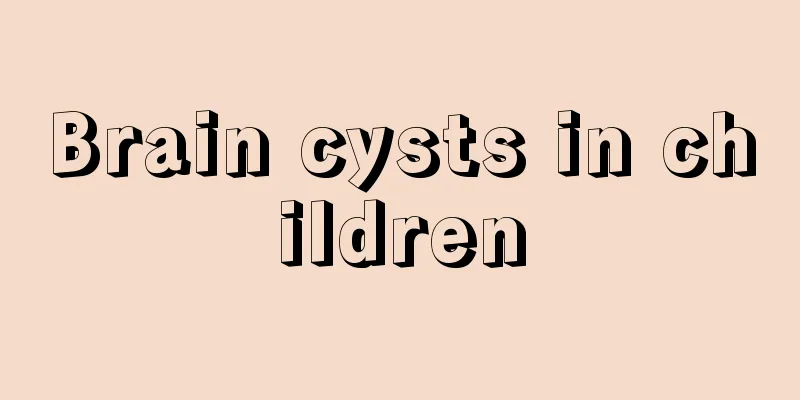Is there any correlation between a baby's love of laughing and his IQ?

|
Is there any correlation between a baby's love of laughing and his IQ? Babies usually love to laugh, which makes parents happy. Moreover, if babies usually love to laugh, it also shows that the baby's IQ is relatively high. The earlier the baby loves to laugh, the more likely the baby is to be smart. In other words, there is a certain relationship between the baby's love of laughing and IQ. In addition to loving to laugh, the baby has a heavier body and likes to imitate, which are all related to the baby's IQ. 6 signs that your baby has a high IQ 1. Love to laugh The earlier a baby laughs, the more likely he is to be smart. While this is not a completely reliable sign, it is a symbol. Babies who start laughing early often become smart and lively children. Laughing means that he can distinguish what makes him happy, and this is the beginning of psychological activity. A baby with keen senses and quick reactions is often very smart. The more sensitive the baby is, the easier it is to be satisfied. Tips: Although a newborn baby spends most of his time sleeping, when he is awake, it is best for the mother to make more eye contact with him, chat with the baby gently, stimulate the baby more, and make the baby laugh more. 2. Heavier babies Babies who are relatively heavier are more likely to be born to mothers who were well nourished and cared for during pregnancy. Heavier babies may also have psychological advantages in life and better physical fitness. For example, they can eat more food each time and therefore do not need to be fed frequently. They can turn their energy to more intellectual activities and therefore have reason to be happier than other children. Meanwhile, heavier, more attractive children may find themselves in a pleasant, emotionally supportive world and take advantage of this initial good fortune in many ways. However, while very intelligent children are often larger and heavier at birth, this is not always the case! Tips: The heavier the newborn's weight is, the better. Some mothers suffer from gestational diabetes during pregnancy, which causes the baby to become oversized. Oversized babies will increase the difficulty of delivery and increase the baby's risk of disease. 3. Love to imitate Newborns have the ability to imitate adult facial expressions. Eight hours after birth, the baby can imitate his mother sticking out her tongue. When the newborn is in a quiet and awake state, keep 20-25cm away from the newborn's face and let him look at your face. First, stick out your tongue, repeating the motion slowly once every few seconds, then stop. If he keeps looking at your face, it means he may be moving his tongue in his mouth, and after a while, he (she) will stick his tongue out of his mouth. If you make the mouth-opening motion to your newborn baby several times, he will learn to open his mouth, too. In addition, newborns will imitate pouting, smiling, and sad expressions. Tips: Parents may wish to actively communicate with the newborn baby, and often perform some actions to the newborn baby, from simple to complex, to improve his imitation ability, which is beneficial to the intellectual development of the newborn baby. 4. Alert and sensitive At birth, smart newborns may be more alert than other children. Some children, from the very beginning, are able to raise their heads for a while on their own, as if looking around, and have a strong curiosity about life. For example, some babies like to lie close to their mother's arms, and they can distinguish the smell of their mother's breast milk. Some newborns can distinguish tastes finely and will show unpleasant expressions when they taste salty, bitter, or sour. When he's in a good mood, he'll gaze at you and smile, suck his hands, or grab the hand of the person he's talking to. Tips: If you have a baby who is alert, active and curious at home, mothers should stop complaining that the baby is a little bad boy who never keeps quiet. That is a sign of the baby's intelligence. 5. Like to watch things Vision is an important sense for promoting infant psychological development Vision is an important sense that promotes the psychological development of infants. If babies live in an environment with appropriate visual stimulation from an early age, it will lay a good foundation for their perceptual and cognitive development. Newborns like to look at things, especially books, things with bright colors, such as red balls or black and white bull's-eye pictures, bar graphs, Chinese characters, etc. He especially likes looking at people's faces. Especially the mother's loving smile. Tips: Mothers should often consciously let their babies look at their faces, bend over to talk to the babies, call their names or smile at them, and constantly change the angle of their gaze. "Eye-to-eye contact" can convey a mother's love for her child and enhance the mother-child relationship. 6. Like to play with small things If you observe carefully, you will find that your baby likes to knock on things after getting them. When he feels that knocking with one hand does not make a sound, he will change to the other hand and knock again. The baby likes to knock things very much. No matter what he gets, he will knock it. Your baby is very interested in small objects that he can grasp. He will hold the bottle well, may also pick up objects with his fingers, transfer objects from one hand to the other, and lift, shake, push, pull, squeeze, and throw objects that are close to him. When he holds a toy in his hand, he will shake the toy vigorously with his hands or throw it heavily on the ground to listen to the sound the toy makes. |
<<: How to spank a child most painfully
>>: What to do if your newborn baby wakes up easily
Recommend
Symptoms of intestinal spasms in children, parents please take note
If a child develops intestinal spasm, the most ob...
Causes of swollen lips in children
Why does my baby’s lips suddenly swell? I don’t k...
What is the cause of the child's drooling?
Many parents will give their babies scarves when ...
What causes vaginal itching in children?
Children are more prone to inflammation because o...
What to do if the umbilical cord of a newborn is infected
We all know that taking care of a newborn is a pa...
How to get a newborn to sleep
The weather nowadays is hot and cold, which is ac...
What is the importance of early education?
The physical health of children is something that...
How to reduce fever when baby has cold
It is actually very common for babies to catch a ...
What are the symptoms and treatments of ADHD in children?
Attention Deficit Hyperactivity Disorder (ADHD) i...
What to do if your child has a bad temper
Good children are not born, but are cultivated by...
What is the cause of hangnails on children's hands?
Parents will be very worried when they find hangn...
Can children with epilepsy be cured?
There is currently no medicine that can completel...
When should the neonatal dressing be removed?
When the fetus is in the mother's body, it is...
Baby sleeps well, start with mosquito prevention
The baby is our hope and the most attention-grabb...
Is it good for children to drink soy milk?
Soy milk has always been a nutritious product in ...









